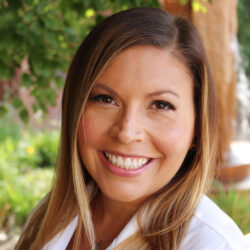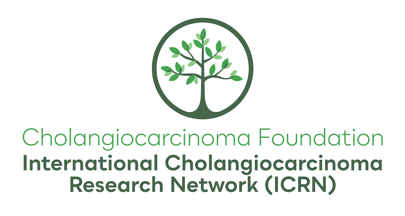Kristen Spencer

| Name | |
| Kristen Spencer | |
| Organization | |
| Rutgers Cancer Institute of New Jersey | |
| Can you tell us a bit about yourself? | |
| I am a medical oncologist at the Rutgers Cancer Institute of New Jersey. I joined there as an assistant professor in 2017 after completing my residency, fellowship, and chief fellowship at Rutgers Robert Wood Johnson Medical School. Prior to that I obtained my medical degree from the UMDNJ-School of Osteopathic Medicine, as well as a Masters in Public Health at Rutgers University School of Public Health, and my undergraduate degree at Duke University. I see patients as a member of the Gastrointestinal/Hepatobiliary and Developmental Therapeutics Programs at CINJ. I also had specialty research training through the Cancer Therapy Evaluation Program (CTEP) Advanced Drug Development Fellowship and the American Society of Clinical Oncology (ASCO)/American Association for Cancer Research (AACR) Workshop on Methods in Clinical Cancer Research.
In addition to treating patients, I conduct research in early phase clinical studies where I work to bring novel agents from the basic science research laboratories at CINJ to the clinic to help advance the oncology field for patients. I am the author or co-author of several publications, reviews, book chapters, and abstracts, and I present my work nationally. I also participate on the national level as a member of the National Cancer Institute (NCI) Hepatobiliary Task Force, as Chair of the ECOG-ACRIN Developmental Therapeutics Genomics Sub-committee, and as a member of the ECOG-ACRIN Task For on Advancement for Women. |
|
| Can you share one or two of your specific research interests? | |
| My research interests focus on hepatobiliary and pancreatic tumors, particularly the use of vaccine and other immunotherapy-based combination approaches to treating these cancers. I am also actively interested in investigating early phase (phase 0 and phase I) compounds. | |
| Why did you decide to specialize in hepatobiliary cancers? | |
| I lost my mother to metastatic colon cancer when I was very young. When I was choosing a specialty within medical oncology to develop a practice, I wanted to honor her in a way. My father said to me, "your mother would want you to work where you are needed." Hepatobiliary cancers are difficult to treat, and the field is in need of ongoing therapeutic developments based on sound clinic research. Moral of the story is, I went where I was needed! | |
| Can you describe one of the unforgettable moments in your patients care or research that has impacted your career? | |
| I am lucky enough to care for many patients with hepatobiliary tumors, often on clinical trial protocols. I had recently lost a patient on one of those protocols whom I had gotten particularly close to. Though we ultimately lost her battle, she had many small victories along the way. I happened to be sitting on an airplane waiting to taxi out to a conference several weeks later when I got to speaking to someone in the aisle across from me. Believe it or not, without violating any HIPAA laws we discovered she was a dear friend of the patient I had lost, and had been so thankful for the hope provided to her friend by the oncologist whom she had heard about for some time (me!). That experience reminded me that everything comes full circle and we are all in this together, so keep fighting! | |
| Can you tell us one thing collaboration with colleagues could accomplish that you could not accomplish on your own? | |
| This is an easy one. I am currently running a phase I/II study of a combination of radiation, the DNA-PK inhibitor M3814, and the checkpoint inhibitor Avelumab in biliary tract cancers. It is difficult to develop, write, and execute a protocol like this one that requires familiarity with early phase trial design and compounds and specialized radiation techniques. I am lucky to have several collaborators on this project, and without them this novel combination approach would not be being actively investigated now. | |
| If you had access to one resource that would move your research forward, what would that resource be? | |
| Open and unlimited access to compounds for clinical investigation. I share the belief with some of my mentors here that if a drug does not cure a disease, it should be made available to researchers for clinical trial investigation. | |
| How did you learn about the Cholangiocarcinoma Foundation? | |
| I am lucky to have worked with Dr. Milind Javle on several projects, and he was kind enough to involve me in the CCF. | |
| Can you tell us why you became a member of the ICRN? | |
| As a clinical investigator involved in the development of new approaches to treating hepatobiliary tumors, it was important to me to have a network of collaborators in the field for potential research opportunities and to stay up to date on progress in the field. In addition to that, some of the members are really good at karaoke! | |
| If you are one of our Cholangiocarcinoma Foundation Fellowship awardees, how has this Fellowship impacted your career? | |
| It's difficult to describe all the ways CCF has impacted my career. It wasn't until I found CCF that I was able to make the connections in the field that I have. Within these connections I have had the blessing of developing several research collaborations, finding true mentors, and growing my presence in the field through publications and presentations. I have also had the pleasure of meeting the incredible patients and family members this is all about. None of this would have been possible without CCF. | |
